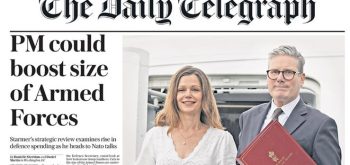The legal and social issues that surround sexual offences are complex and, by their very nature, dependant upon their own particular facts, writes Mark Barlow and Mark Newby. The protection of children and vulnerable individuals must be our priority, together with procedures to safeguard our children from abuse.
- This article is written by Mark Barlow, a barrister at Garden Court North Chambers in Manchester and Mark Newby, a solicitor Advocate at Quality Solicitors Jordans in Doncaster.
However, experience has shown, that the protection of those who are accused of such offences also needs to play an equally important role in the criminal process if we are to achieve justice. Sadly the safeguarding of the right to a fair trial is in danger of being eroded further by the ever-increasing societal panic as each new celebrity is arrested, raising serious concerns as to the survival of the judicial and jury impartiality that is designed to safeguard the fundamental right to a fair hearing.
Therapeutic jurisprudence
Barbara Hewson’s recent article in Spiked has caused controversy due to some controversial statements but does raises a number of important observations in light of Operation Yewtree (see HERE). She highlighted the dangers that exist in the way that the police conducted this enquiry, working alongside organisations like the NSPCC, resulting in Operation Yewtree assuming the role of the judge and the jury. Her concern is that this approach has created a ‘prurient charade’ that has nothing to do with justice or the public interest. By focusing on giving the victims ‘a voice’ it has ignored the court’s traditional role where the state must prove defendants guilt for the jury to convict.
The therapeutic jurisprudence she talks about highlights that the right to a fair trial is ignored in favour of achieving a particular result. The real risk here is that the very foundation upon which our criminal justice operates may be in danger of being undermined as a result of society’s moral panic.
Whether or not some of her views are misplaced such as calling for the lowering of the age of consent is irrelevant, what is important is that she was calling for a timely sense of proportion to these cases and a re-evaluation of how we deal with them.
Keir Starmer QC has called for a national consensus on the investigation and prosecution of child abuse cases. As the authors have commented upon before this call to arms is a welcome development in what is a complex and difficult area of our criminal justice system. The reaction to the Barbara Hewson article highlights the fear that the justifiable outrage which child sex abuse causes will prevent debate on a subject that urgently needs to be debated.
Issues relating to a time limitation for criminal prosecution and civil actions, and the anonymity of the accused are not new and were considered in 2002 with the Home Affairs Select Committee Report The Conduct of Investigations into past cases of abuse in Children’s Homes (Fourth Report of Session 2001 – 02). Recent studies show support for a defendant having a right for anonymity until convicted, highlighting wider public concern that needs to be explored within a legal framework, but they are not the only ones.
Our criminal trial process rests upon the quality and impartiality of the police investigation and the issue of impartiality and fairness is crucial to the whole process. The dangers associated with trial by media and the influence this may have on that process of investigation will undermine the legal trial integrity.
Complainants must be dealt with fairly and listened to by the police, evidence obtained and a fair and balanced investigation conducted. Working together to achieve best practice is an important aspect of policing but the independence of the police and their investigation must never be subsumed into the agenda of other organisations which could impact upon the question of the safety of any resulting convictions.
Abuse happens. The challenge for the criminal justice system is how it deals with this complex issue.
The current position of celebrities’ accused of historic offences is no more than others have previously faced. Care workers and teachers spring to mind, together with youth workers, nursery staff, and clergy. The only difference is, of course, the relentless media attention that they receive. The current pattern highlights the real risk that yet another ‘new genre’ of miscarriages will happen.
Trial by media
The lessons learnt from the Great Children’s Homes Panic are being ignored and our fundamental right to a fair hearing is in danger of being destroyed.
Fundamentally, it leads to trial by media, who give extended attention to the accusers in a way that assumes every allegation is true, when experience has shown that false allegations are made and have been made by adults alleging childhood abuse. The overwhelming pressure placed on society by these cases can result in the Jury starting from a moral presumption of guilt.
The proposed reforms of legal aid next year will almost guarantee many more such wrongful convictions, reflecting but not learning from the convictions that were quashed between 2002 and 2009. The impact of this is not limited to those falsely accused. The problem with being driven into a culture of false allegation and wrongful convictions is that it sets back the plight of those genuine victims who are denied justice by a system showed to have been flawed and incapable of delivering the correct outcomes. For when convictions start being quashed those subject to genuine abuse will lose the opportunity to get their cases successfully prosecuted.
We have to arrive at a better system for ensuring those genuinely abused obtain justice and that those who are falsely accused are not thrown to the wolves.
The recent calls for a closer examination of the system, although badly put, have merit. We must still pursue these cases but we must also reflect upon how they should be pursued and on what basis. We must, as a modern society, arrive at a much better way to tackle these cases. Both the accused and the accuser are treated equitably for the accused are not sex offenders or paedophiles by default, they are unconvicted persons accused of an allegation which may or may not be true, and that is an issue for the courts to decide.
There should be no overt or whispering campaign by the media against them and the system should respect their character accordingly whilst also offering the best protection possible to the person making the allegations.
The Lord Chief Justice himself called for reform recently and there may be better ways to gather the evidence and to test it out. But fundamentally, we must not do any more to alter the deck of cards that is already fundamentally stacked in favour of those making an allegation.
The time has come to stop this process of trial by media now before it is too late, to take a step back and pursue genuine allegations in a careful and restrained way and to get on with a national debate as to how we want our future justice system to tackle these cases from all perspectives.
We must ensure that the issues that surround sexual offences are fully and properly debated. We cannot afford not to.






Conservatives’ new homicide plan would still have let Valdo Calocane ‘get away with murder’